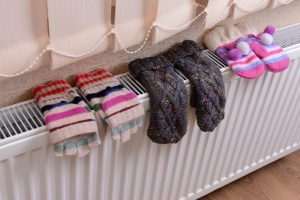 Just a couple short weeks ago, the National Weather Service declared this winter as one of the coldest in 32 years for our area. Of course, if you’ve lived in the Seattle area for even just a few years, you probably don’t need to be told that it’s been pretty darn cold! And more cold weather is on its way—are you prepared?
Just a couple short weeks ago, the National Weather Service declared this winter as one of the coldest in 32 years for our area. Of course, if you’ve lived in the Seattle area for even just a few years, you probably don’t need to be told that it’s been pretty darn cold! And more cold weather is on its way—are you prepared?
Hopefully, you are well equipped with a fully functioning and well-maintained heating system that’s gotten you through the season so far. But what is your heater doing for your Seattle, WA indoor air quality?
Heaters and Humidity
It’s only natural during winter that you crank up the heat in your home to remain comfortable. But in doing so, you can be diminishing your own comfort in another way: by decreasing your home’s humidity. Low humidity causes problems for the actual structure of your home, and also can lead to symptoms such as dry/cracked skin, sore throats, respiratory issues, and dried-out sinuses.
The Science of Humidification
The temperature of the air in your home determines how much water vapor that air can hold. Warmer temperatures increase the water vapor capacity in a home while cooler temperatures reduce the moisture capacity of your indoor air. This may seem tricky, since your heater, of course, increases the temperature.
But what you are doing when you heat your indoor air is that even though you are increasing the water vapor capacity of your home, you aren’t changing the moisture content already present, resulting in uncomfortably and unhealthy dry air. This is called relative humidity. Ideally, your home’s relative humidity should be between 30–50%.
So, Should You Invest in a Whole-House Humidifier?
Perhaps you’re okay with a little dryness in your air—after all, what’s a little discomfort for a few months out of the year? First of all, it never gets that warm in Seattle, meaning that you’re likely to use your heating system more than you are your AC system, and that you’ll experience dry air more often than not, as a result.
Dry air poses a threat for a few reasons aside from just simple discomfort. It can affect your health and your home. Low humidity contributes to dehydration, respiratory conditions or aggravated symptoms for those with susceptibility to asthma and allergies, irritation of the skin, eyes, nose, and throat, and to your home—dried out wood floors, furnishings, and even precision instruments.
Overall, not doing everything you can to tackle the low moisture levels in your home could end up costing you more than investing in a quality humidifier. Additionally, low moisture decreases the already cool temperatures, making you turn up your heater more than you should have to, which reflects in your energy bills each month.
How Do Humidifiers Work?
Humidifiers work through the process of evaporation: evaporator pads are infused with water when indoor humidity levels drop, and moisture is transferred from these pads to your airflow. Unfortunately, the moisture from these pads could potentially create problems if neglected or not changed out often enough.
Steam humidifiers are the solution to this. They heat water before releasing into the air, thus creating steam and an effective humidification process. The steam circulates throughout your home to create an efficient way to both heat your home, and humidify it.
To schedule your Seattle area humidifier installation with an experienced team who takes your comfort as seriously as you do, simply contact Sound Heating today!
